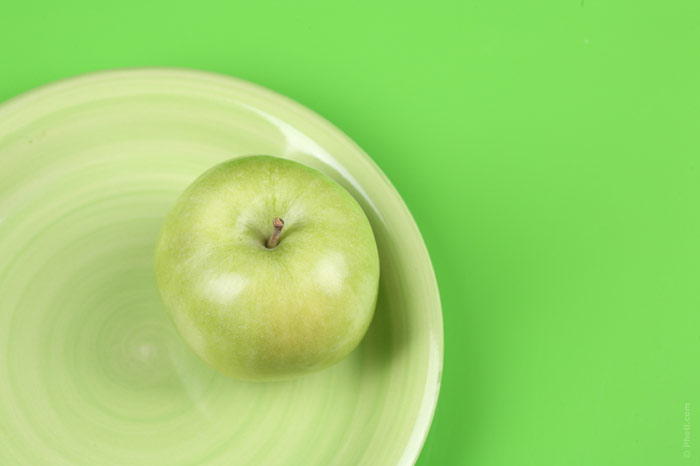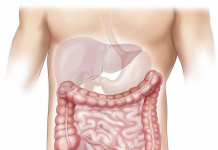Most of us eat to have enough energy for a busy day, not to thicken the waistline. We don’t mean to fill it out… Yet we do. What’s going on inside us that in spite of our care and workouts we are having more problems fitting into clothes? Yes, slow metabolism has got a lot to answer for – but there are other factors, some of which can almost be called „hidden,“ which can contribute to our weight concern.

Eating too fast
While you keep chewing and swallowing, full 20 minutes will pass before your body sends information that you have eaten enough. Meanwhile, you go on eating to end up having eaten more than necessary and feeling very, very full. If you are known for the speed with which you go through your meal, you should consider the advisability of being a champion fast devourer.
You don’t sleep enough
Going to bed late means you may not get enough sleep – and you stand a good chance to be tempted to have another snack. Besides, insufficient sleep by itself is conducive to putting on extra pounds: sleep deprivation causes biochemical changes which make you want to eat more because you don’t feel full enough.
Using fat glasses
Drinking from a short thick glass may create an illusory notion that you drink less being under-served. But really you drink less if your glass is tall and thin.
Too much healthy food?

Your heart rejoices at a few drops of olive oil, but if you overdo it, your dish gets loaded with a whole big kilojoule. Considering that you add 500 kilojoules and more with each 15ml tablespoon, you can inadvertently have a lavishly oiled healthy salad wrap pounds around your waistline.
Too much stress?
As we bend down under stress, the level of the stress hormone, cortisol, goes up in our body. The more cortisol there is, the greater appetite we feel. Then again, there is an insidious tendency to eat more in times of stress trying to recapture comfort. Bear in mind that stressful periods require rigorous food control.
Watching TV or reading?
Watching movies, working or playing on the computer, listening to the radio are notorious activities stimulating you to stuff your mouth when you may not really want it.
You’ve quit smoking
Getting rid of the smoking habit is a great step to improve your health. But giving up smoking is accompanied by gaining some weight. The extent of the problem is not so significant, though, on average it is a matter of putting on about 10 pounds at most. If you hold out for a few weeks, you will stop feeling this kind of unnatural hunger and will be able to get rid of the weight you acquired.
Taking antidepressants

Weight gain is an inevitable side effect for those who take antidepressant medicines. Naturally, it is no good reason to forgo taking prescribed medications, but in case your weight gain gets out of hand, you can consult your doctor about introducing changes into treatment.
Oftentimes people go on putting on weight even after the treatment is over because they begin to feel better and their appetite picks up. Also, depression is always apt to lead to weight fluctuations.
Polycystic Ovary Syndrome (PCOS)
Many women who are not past childbearing age can develop PCOS. It is a hormonal problem, so afflicted women grow sprinklings of tiny cysts all over their ovaries. PCOS creates a hormone imbalance that can wreak havoc with the menstrual cycle and cause extra hair and acne springing up on the body.
In this condition the woman develops insulin resistance, meaning they can gain weight. Excessive pounds usually collect around the waist and hips, increasing cardiac risks for these women.
Taking steroids medication
Prednisone and other steroids are also notorious stimulants of weight gain because they help retain body fluids and boost appetite. The weight thus gained is subject to the dose of the steroid medication taken and to the time people use steroids. Besides, they can lead to a temporary redistribution of the fat in the body making it collect on the face, the neck, and the stomach.
You snack too often

The popular theory of having six small meals a day, while being perfectly all right, requires a high level of self-discipline and quite a lot of planning; unless you do it right, six snacks can load you up and bring your weight up very quickly.
To begin with, for many of us snacking is associated with those kinds of food that are far from being healthy (snacks tend to be high on kilojoule and low on nutrients).
What’s more, food taken randomly is apt to give your memory a slip compared to that taken during a proper meal. When asked at the end of the day what you ate, you will be able to recall your breakfast and lunch yet have trouble with remembering all the nuts and goodies you chewed up in passing, or the waffle you had with your coffee during a break at work.
You’re suffering from hypothyroidism
When your thyroid is not producing its hormone to the necessary extent, it will leave you feeling washed, languid, and cold; gaining weight to boot. A shortage of the thyroid hormone slows down your metabolism, setting the condition for putting on weight.
So when your thyroid begins to drift towards the lower normal mark you can get heavier. In this case, hypothyroidism may require medication treatment that may assist in dropping the gained weight.
It’s the color of your plate

According to a Journal of Consumer Research study, the way our porcelain color sets off the color of the food can influence our consumption rather markedly. If the food color turns out to be similar to the plate color, the likelihood of serving and eating more grows by something like 22% – which doesn’t happen if the plate color is in contrast with the food color.
You’re using big plates
Brian Wansink and his team remind you that when eating from a larger plate you are quite certain to put down more of the stuff because you are likely to have served yourself more.











